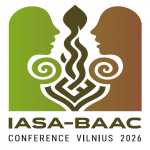5. Preparing the recording projects
When the scope and order of an overall programme has thus been decided the next stage is to elaborate its component parts so that each constitutes a clearly defined recording project for the centre to undertake. The projects must be historically coherent, in the sense that their subject and chronological limits are set to cover distinct chapters or episodes in the archive's field of interest. The boundaries of such projects should also be limited so that each one represents a research field that can be documented satisfactorily by the kind of relatively small and representative selection of interviews that economic constraints almost invariably impose on oral history recording.
Once these general requirements have been met the next stage is to work out in reasonable detail the objectives or research aims of each project. As an example of the kind of subject demarcation that is necessary in oral history research, a list of topics is set out below which guided interviewers in a project carried out at the Imperial War Museum. This project, designed to investigate conditions of employment for women working in industry during the First World War, was first structured to cover the following main areas:
Recruitment
Training
The job
The work place
Transport
Food
Health
Finance
Free time
Traditions
Management
Industrial relations
The war
Demobilisation
Each of these topics was developed in some detail, the extent and nature of which may be demonstrated by one example. Thus, for 'The job', the following questions influenced the interviewers' approach:
- What was the official description of your job? How did the description compare with your actual work? Outline a routine day on the job.
- Which jobs were preferred? Which disliked and why? Under what circumstances did people change jobs?
- Describe the equipment used at work. Were any adaptations necessary for war production?
- What were your wages? How did they compare with earnings in previous employment? Were men and women paid the same? What did you think of the level of pay? What were the opportunities for overtime and promotion?
- What hours did you work? Were they typical? What were the shift and holiday arrangements?
- What did you wear? How much of this was provided by the employer?
- Did people make changes (e.g. for convenience or style)? What did you think about women wearing trousers? How did other people react to them?
- Were there shortages of staff or materials? Was there sufficient technical expertise? What was done about the shortages? What were the consequences of them?
- Did any new developments arise during wartime (e.g. in the job, the equipment or the product)?
The foregoing is not given as a prescription for designing oral history recordings projects. Obviously approaches must vary according to the subject being investigated, the research aims of the archive or the kind of informants who are to be recorded. But this example should further illustrate the degree and nature of preparation that oral history research generally requires. In this process the formulation of project papers, as above, imposes the necessary historical discipline on those responsible for organising the recording programme. In addition to defining clearly the aims of each project, such guidelines also go a long way towards ensuring high standards of planning and help to secure consistency of approach by the interviewers who are to carry out the work.


